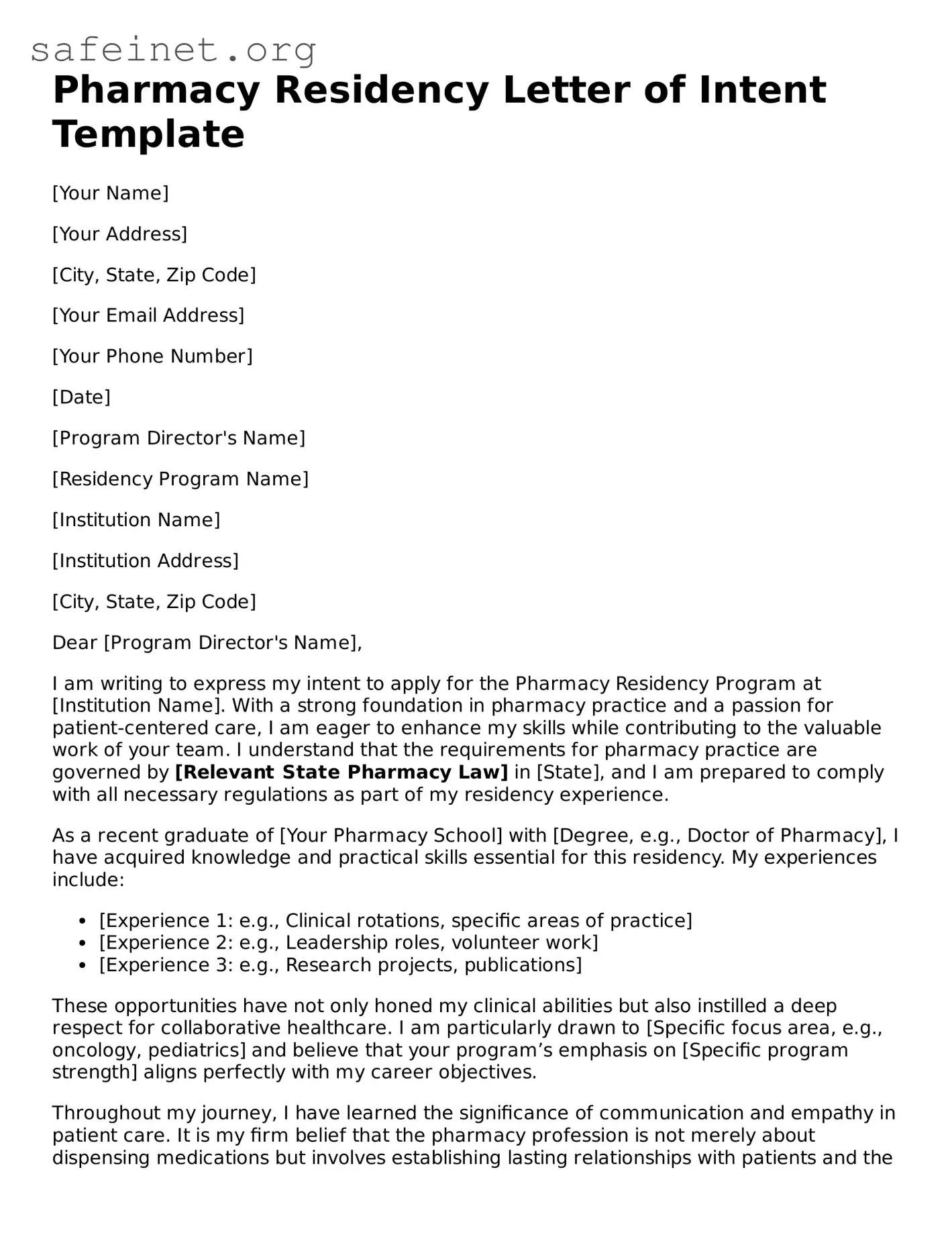What is a Pharmacy Residency Letter of Intent?
A Pharmacy Residency Letter of Intent is a formal document that aspiring pharmacy residents submit as part of their application process. It outlines the candidate's professional goals, reasons for pursuing a residency, and specific interests in the program they are applying to. This letter serves as a way to communicate one's commitment and enthusiasm for the field of pharmacy and the residency opportunity.
Why is the Letter of Intent important?
The Letter of Intent is crucial because it provides a personal perspective that goes beyond grades and experience. It allows candidates to showcase their passion for pharmacy, their understanding of the residency program, and their fit within the specific organizational culture. An effective letter can differentiate a candidate in a competitive selection process.
What should be included in the Letter of Intent?
Essential components of the Letter of Intent include a brief introduction, a statement of interest in the specific residency program, an explanation of relevant experiences, and future career goals. Candidates often highlight why they are interested in particular areas of pharmacy practice or how they align with the program’s values and mission.
How long should the Letter of Intent be?
Typically, a Letter of Intent should be one page long. Candidates should strive for clear and concise language while ensuring they cover all essential points. Generally, a single-page length allows for thorough communication without overwhelming the reader with information.
Is there a specific format for the Letter of Intent?
While there may not be a strict format, maintaining a professional structure is essential. Standard business letter formatting is usually appropriate. This includes a header with your contact information, followed by the date, and then the recipient’s information. A polite salutation and closing also contribute to a polished presentation.
When should I submit my Letter of Intent?
The Letter of Intent should usually be submitted along with the residency application, often by a specified deadline. It's important to check the individual program's requirements. Some programs may have earlier deadlines than others, so staying informed is key.
Can I customize my Letter of Intent for different programs?
Absolutely! Personalizing your Letter of Intent for each program is highly recommended. Tailoring the letter demonstrates genuine interest and an understanding of what each program offers. Highlight your unique connections to the program's values and practice areas to make a strong impression.
Who should I address in the Letter of Intent?
It is best to address the Letter of Intent to the program director or the admissions committee, if a specific name is not available. If possible, try to find the name of the person in charge of reviewing applications to add a personal touch.
Should I seek feedback on my Letter of Intent?
Definitely! After drafting your letter, seeking feedback from a mentor, a pharmacy professor, or a colleague can provide valuable insights. An external review can help identify areas for improvement in clarity, tone, and overall impact, ensuring your letter is as effective as possible.
What common mistakes should I avoid in my Letter of Intent?
Some common mistakes include being overly generic or not deeply reflecting on why the specific program is appealing. Typos and grammatical errors can also detract from your professionalism. Avoid using clichéd language and instead focus on specific experiences that truly resonate with your career aspirations.
